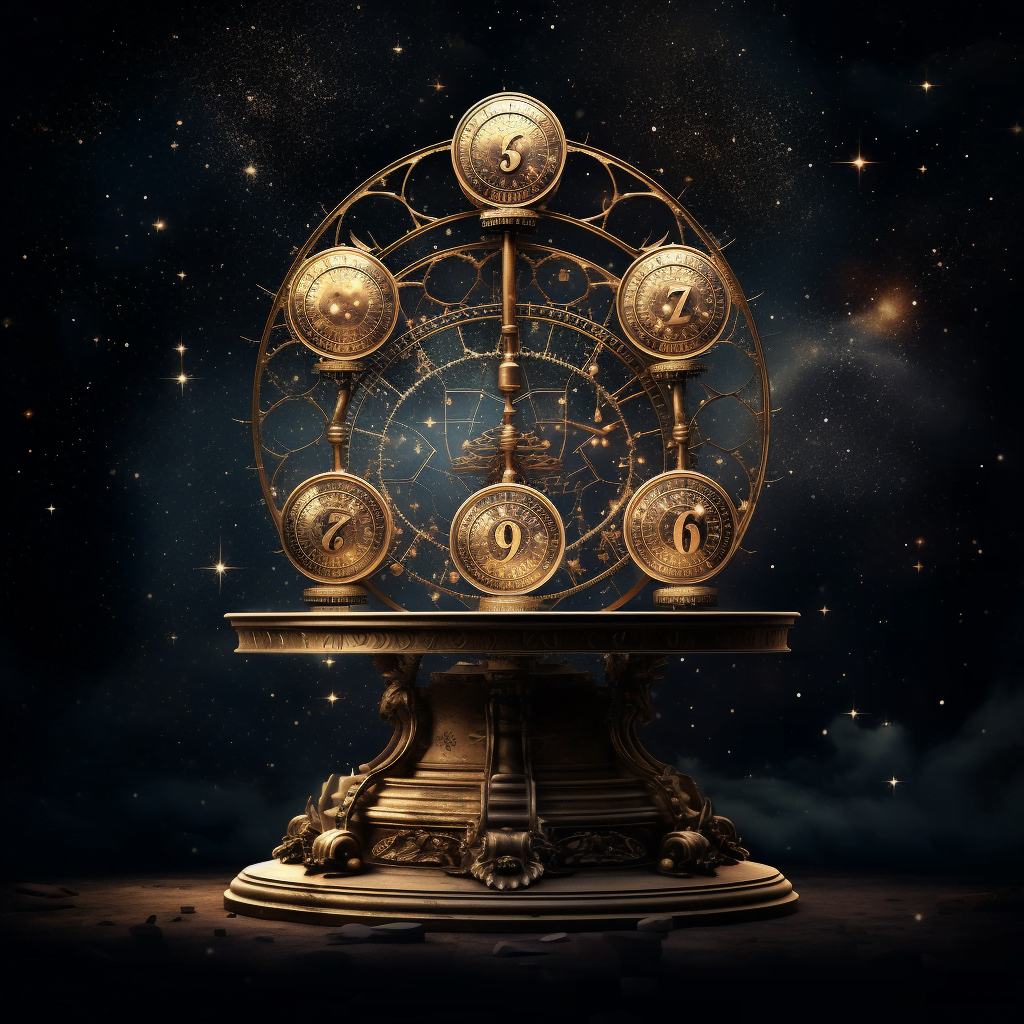The Impact of Astrology on Mental Health explores the intriguing relationship between astrology and mental well-being. This article investigates whether beliefs in astrology have a genuine impact on mental health, considering the influence of astrology and the zodiac on individuals’ perception of themselves and their daily lives. By examining various studies and expert opinions, this article uncovers the potential effects astrology can have on mental health, shedding light on an area that is often overlooked in academic research and providing a fascinating exploration of this enduring phenomenon.
Understanding Astrology
What is astrology?
Astrology is a complex system that encompasses the belief that the positions and movements of celestial bodies can impact human behavior and personality traits. It is based on the notion that there is a connection between the positioning of the stars, planets, and other celestial bodies at the time of an individual’s birth, and their character, destiny, and life events. Astrologers analyze these celestial configurations and interpret their significance in order to provide insights into various aspects of an individual’s life.
History of astrology
Astrology has a rich and diverse history that spans back thousands of years. Its origins can be traced back to ancient civilizations in Mesopotamia, Egypt, and India. In ancient times, astrology was closely intertwined with astronomy and was considered a highly respected and respected discipline. It was practiced and studied by prominent figures such as astronomers, philosophers, and mathematicians. Over the centuries, astrology evolved and adapted to the cultural and societal changes, leading to different branches and schools of thought.
The role of astrology in society
Throughout history, astrology has played a significant role in shaping societies and cultures. In ancient times, astrology was seen as a means of understanding and predicting natural events, as well as a way to gain insight into human behavior and societal patterns. It was used to make decisions regarding agriculture, medicine, and political leadership. Even today, astrology continues to have a place in society, with many individuals seeking astrological guidance to gain a deeper understanding of themselves and their place in the world.
Astrological Beliefs and Mental Health
The connection between astrology and mental health
Astrology has long been associated with mental health, as it aims to provide insights into an individual’s personality, motivations, and emotional well-being. Many believe that the positions of celestial bodies at the time of birth can have a profound impact on one’s mental and emotional development. Astrologers often analyze birth charts to identify potential strengths, weaknesses, and emotional vulnerabilities. This connection between astrology and mental health is based on the belief that there is a cosmic interplay between the celestial forces and the human psyche.
The impact of astrological beliefs on individual mental health
Astrological beliefs can have a significant impact on individual mental health. For some, astrology provides a sense of comfort and reassurance, as it offers explanations for certain personality traits, life events, and challenges. It can provide a framework for understanding oneself and navigating life’s complexities. However, for others, astrology can be a source of distress. The belief in astrology’s predictions and the fear of negative outcomes can lead to anxiety, stress, and obsessive thoughts. It is important to recognize that the impact of astrological beliefs on mental health varies from individual to individual.
Astrology as a coping mechanism
Astrology can serve as a coping mechanism for individuals seeking solace and guidance during challenging times. It offers a sense of control and understanding in uncertain situations, providing a framework for interpreting and making sense of personal experiences. Astrology can provide a sense of direction, enabling individuals to make informed decisions and navigate life’s challenges. Moreover, astrology’s emphasis on self-reflection and personal growth can foster resilience and promote mental well-being.
Astrology and self-identity
Astrology can also play a role in shaping one’s self-identity. By aligning with specific astrological signs or characteristics, individuals may develop a sense of belonging and identity. Astrology can provide a language and framework for understanding oneself and relating to others. It allows individuals to explore their unique traits, strengths, and weaknesses, fostering self-acceptance and self-discovery. However, it is crucial to approach astrology as a tool for self-exploration rather than as a rigid determinant of one’s identity.
Astrological Readings and Psychological Well-being
Psychological effects of astrological readings
Astrological readings can have various psychological effects on individuals. For some, these readings provide validation and affirmation of their experiences and feelings. It can offer comfort and reassurance during challenging times and provide a sense of clarity and guidance. Astrological readings may also evoke a sense of curiosity and intrigue, sparking self-reflection and personal growth. However, it is important to note that the psychological effects of astrological readings are highly individualized and may vary depending on personal beliefs, experiences, and interpretations of the readings.
The placebo effect and astrology
The placebo effect, commonly observed in medical interventions, also has relevance in the realm of astrology. The placebo effect refers to the phenomenon wherein individuals experience positive mental and physical outcomes due to their belief in a treatment, regardless of its actual effectiveness. In the context of astrology, individuals may experience a placebo effect when engaging in astrological readings or following astrological advice. The belief in astrology’s efficacy can lead individuals to act in ways that promote well-being and personal growth, ultimately influencing their psychological well-being.
Astrological readings as a tool for self-reflection and self-improvement
Astrological readings can serve as a valuable tool for self-reflection and self-improvement. By exploring and analyzing the various aspects of their birth chart, individuals can gain insights into their strengths, weaknesses, and potential growth areas. Astrological readings can help individuals identify patterns of behavior, emotional challenges, and areas for personal development. This process of self-reflection can foster a deeper understanding of oneself, leading to personal growth, increased self-awareness, and improved psychological well-being.
Confirmation Bias and Astrology
What is confirmation bias?
Confirmation bias is a cognitive bias that refers to the tendency of individuals to seek, interpret, and remember information in a way that confirms their existing beliefs or hypotheses. It can shape the way individuals perceive and interpret the world around them, leading to selective attention and memory. Confirmation bias is a natural cognitive process that occurs in various domains, including astrology.
Confirmation bias in relation to astrology
Confirmation bias plays a significant role in the acceptance and interpretation of astrological beliefs and predictions. Individuals who have a preexisting belief in astrology may selectively focus on information that confirms their astrological predictions while disregarding contradictory evidence. For example, if an astrological prediction resonates with an individual’s experience, that person may attribute the successful outcome to astrology while ignoring other potential factors. This confirmation bias reinforces the belief in astrology and can lead to an enhanced sense of its accuracy and validity.
How confirmation bias affects mental health
Confirmation bias in the context of astrology can have both positive and negative effects on mental health. On one hand, confirmation bias can provide a sense of validation and assurance, boosting self-esteem and well-being. Astrological predictions that align with personal experiences can create a perception of control and understanding, alleviating anxiety and promoting a positive outlook. However, confirmation bias can also lead to a closed-mindedness and resistance to alternative perspectives, potentially limiting personal growth and well-being. It is crucial to approach astrology with an open mind and consider multiple perspectives to ensure a balanced approach to mental health.
Criticism and Skepticism
Scientific community’s view on astrology
The scientific community has long been critical of astrology, considering it a pseudoscience due to the lack of empirical evidence supporting its claims. Astrology does not meet the rigorous standards of scientific inquiry, as it relies on subjective interpretations and lacks testable hypotheses. Scientists argue that astrology’s predictions and explanations are based on general statements that can apply to anyone, a phenomenon known as the “Barnum effect.” Thus, astrology is regarded as a belief system rather than a scientifically valid discipline.
Critics’ arguments against astrology
Critics of astrology present several arguments that challenge its legitimacy. They argue that astrological predictions and personality assessments are too vague and generalized to provide accurate and meaningful insights into an individual’s life. Critics also highlight the lack of consistency among astrologers, as different practitioners may interpret the same birth chart differently, leading to conflicting predictions. Furthermore, astrology’s reliance on outdated celestial maps and assumptions about celestial influences undermines its credibility in the eyes of skeptics.
Psychological effects of skepticism towards astrology
Skepticism towards astrology can have psychological effects on individuals who strongly believe in its principles. Skeptics may experience feelings of invalidation and misunderstanding, as their beliefs are contradicted or dismissed by others. This can lead to cognitive dissonance and frustration. Additionally, skepticism towards astrology may push individuals to critically evaluate their beliefs and engage in self-reflection, which can lead to enhanced critical thinking skills and a deeper understanding of their own cognitive biases.
Astrology and Mental Health Therapies
Integration of astrology with therapy
Some mental health practitioners integrate astrology into their therapeutic approaches, considering it a valuable tool for self-exploration and self-reflection. They believe that astrology can complement traditional therapy by offering a unique perspective on an individual’s life experiences, motivations, and challenges. Integrating astrology into therapy aims to provide individuals with additional insight and guidance as they navigate their mental health journeys.
Astrology as a complementary approach
Astrology is often used as a complementary approach in mental health therapies. Mental health professionals utilizing astrology may incorporate astrological insights into therapy sessions to shed light on underlying patterns or motivations. Astrology can help identify certain predispositions or personality traits, facilitating a deeper understanding of oneself. It can also provide a language and framework for discussing and exploring personal experiences, emotions, and challenges.
Potential benefits and limitations of incorporating astrology in therapy
The incorporation of astrology in therapy may offer several benefits. It can enhance self-awareness, facilitate personal growth, and promote a sense of meaning and purpose. Astrology can provide a sense of validation and reassurance, as individuals may find comfort in understanding the cosmic forces at play in their lives. However, it is essential to approach astrology as a tool and consider its limitations. Astrology should not replace evidence-based therapeutic approaches, and therapists should remain vigilant about potential subjective interpretations and biases.
The Need for Empirical Research
Current state of empirical research on astrology and mental health
Despite its popularity, empirical research on the relationship between astrology and mental health remains limited. Most studies examining astrology’s impact on mental health have been conducted in non-academic settings and lack scientific rigor. Existing studies often rely on self-report measures and subjective interpretations, making it difficult to draw definitive conclusions about astrology’s effects on mental health. More effort is needed to explore astrology within a well-designed empirical framework.
Challenges in conducting research on astrology
Conducting rigorous empirical research on astrology and mental health faces numerous challenges. First, astrology’s subjective nature makes it challenging to develop unbiased and standardized research protocols. Additionally, astrology encompasses a wide range of beliefs and practices, which can be challenging to categorize and measure. Furthermore, ethical considerations arise when studying astrology’s potential effects on mental health, as researchers must be mindful of potential harm or exploitation of vulnerable individuals.
Potential avenues for future research
Future research should prioritize a multi-method and interdisciplinary approach to studying astrology and mental health. Randomized controlled trials and longitudinal studies can offer more robust evidence regarding astrology’s impact on mental health outcomes. Moreover, collaborations between astrologers and researchers can foster a better understanding of astrology’s underlying mechanisms and identify potential areas for improvement. By integrating diverse perspectives and employing rigorous research methodologies, future studies can provide more nuanced insights into the intersection of astrology and mental health.
Astrology vs. Predestined Fate
Astrology’s role in influencing personal choices
Astrology has long been associated with the belief in predestined fate or destiny. Some individuals perceive astrology as a guiding force that influences personal choices and life events. The positioning of celestial bodies at the time of birth is believed to shape an individual’s character, strengths, and weaknesses, which can in turn influence life decisions. This belief in predestined fate can provide individuals with a sense of direction, purpose, and acceptance of life circumstances.
Balancing astrology with personal agency
While astrology may suggest certain predispositions and potential paths, it is important to acknowledge the role of personal agency and free will in shaping one’s life. Individuals have the capacity to make choices that can deviate from astrological predictions or perceived destiny. Balancing astrology with personal agency involves recognizing astrology as a tool for self-reflection and guidance, while also taking responsibility for one’s actions and decisions. This approach allows individuals to navigate their lives consciously, accepting the influence of cosmic forces while actively shaping their own paths.
Mental health implications of accepting or rejecting predestined fate
Accepting or rejecting the belief in predestined fate can have various mental health implications. For those who embrace astrology’s influence on personal choices, there may be a sense of relief and acceptance, as life events and challenges are seen as part of a greater cosmic design. This can reduce feelings of guilt, self-doubt, and existential anxiety. However, individuals who reject the notion of predestined fate may experience a stronger sense of personal agency and empowerment. They may seek to actively shape their own paths, embracing the uncertainty and possibilities that life offers.
Astrology and Stress Management
Astrological practices for stress relief
Astrology offers various practices that individuals can utilize for stress relief. One such practice is identifying and harnessing the qualities associated with their astrological sign. For instance, individuals with a fire sign may find solace in engaging in physical activities or expressing themselves creatively, while those with an earth sign may benefit from grounding practices such as meditation or nature walks. Astrology can provide personalized guidance on stress management techniques based on an individual’s unique astrological makeup.
Astrological tools for self-care
Astrology provides individuals with a range of tools for self-care. This includes using astrological transits to guide decision-making, understanding the impact of planetary cycles on mood and energy levels, and aligning self-care routines with astrological elements and signs. By incorporating astrology into their self-care practices, individuals can gain a deeper sense of connection to themselves and the universe, promoting a holistic approach to stress management and overall well-being.
The role of astrology in promoting relaxation and mindfulness
Astrology can serve as a catalyst for relaxation and mindfulness practices. By connecting with celestial forces and contemplating cosmic cycles, individuals can cultivate a sense of presence and interconnectedness. Astrology encourages individuals to observe and reflect on the patterns and rhythms of the universe, fostering a sense of awe and appreciation. Engaging in astrology-related activities such as stargazing, meditation, or journaling can promote relaxation, reduce stress, and enhance overall mental well-being.
Conclusion
Astrology has a profound influence on mental health, shaping beliefs, perceptions, and self-identity. It offers individuals a means of understanding themselves and their place in the world, providing insights into personality traits, life events, and potential paths for personal growth. Astrological readings and beliefs can have psychological effects, both positive and negative, on individuals, influenced by factors such as confirmation bias and personal agency. While astrology remains a subject of skepticism in the scientific community, it continues to capture the interest and engagement of individuals seeking guidance and meaning in their lives. As the field of astrology evolves, empirical research is needed to better understand its impact on mental health and explore its potential benefits and limitations in therapeutic settings. Ultimately, the intersection of astrology and mental health is a complex and multifaceted topic that warrants further exploration and consideration.


